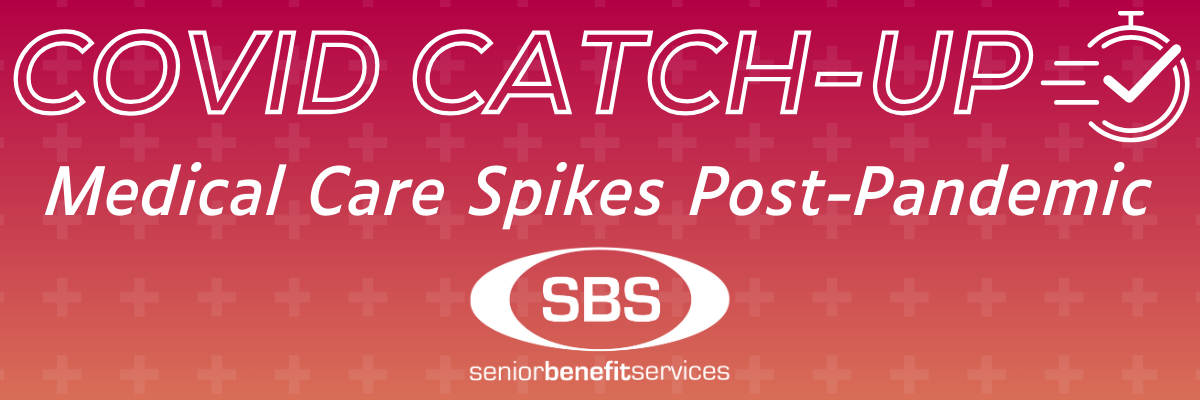
Few events in recent memory have shaken the world quite like the COVID-19 pandemic. Aftershocks from the pandemic are still being felt today, long after the public health emergency’s end was declared by the CDC. From the price of basic necessities to housing, the economy is still suffering from record inflation spurred on by the pandemic.
After the initial shocks of the pandemic in 2020, the Bureau of Labor Statistics reported that medical care spending increased 24% in 2021. This is likely due in part to COVID-19 restrictions and fear of the virus discouraging consumers from seeking non-emergency medical aid. The end result is that many people have postponed receiving crucial medical care and prescriptions, which could further exacerbate health problems.
Relevant data seems to indicate this was the case. The American Medical Association revealed that 41% of surveyed patients skipped medical care during the pandemic. Of that 41%, patients cited medical practice closures, financial repercussions, and fear of COVID-19 exposure as reasons to skip the doctor.
An overlooked aspect of the pandemic is what some are calling the “Covid Catch-Up”, defined as the rush to seek products or services after the end of the public health emergency. We are seeing this in education, in finance, but the influx in demand for healthcare has left hospitals swamped. Experts say the increase in demand post-pandemic is contributing to rising medical costs. Among the most affected by these rising costs are heart procedures and outpatient orthopedic surgeries, which are most commonly needed by Medicare-aged individuals.
On a large scale, Medicare spending is projected to take up a larger slice of the GDP over the next 10 years, projected to grow from 18.3% in 2021 to 19.6% in 2031. Recent efforts to control drug prices such as the Inflation Reduction act are projected to result in lower Out-Of-Pocket spending on prescriptions. What this means for the average Medicare beneficiary is that spending on healthcare is expected to go up over time, but some costs such as prescription drugs may decrease.
Does your current Medicare coverage protect your savings from these rising costs? Do you have a plan in place so that you can sleep easy at night? If you have any questions or concerns about your coverage and protecting your future, feel free to give us a call!
Sources:
American Medical Association – “Why 41% of patients have skipped care during COVID-19 pandemic” – 2.15.2021
Bureau of Labor Statistics – “How did the COVID-19 pandemic affect healthcare spending?” – November 2023
Centers For Disease Control and Prevention – “End of the Federal COVID-19 Public Health Emergency (PHE) Declaration” – 9.12.2023
Centers for Medicare & Medicaid Services – “NHE Fact Sheet”
Reuters – “US Hospitals see post pandemic catch-up behind insurer healthcare costs” – 2.13.2024
1-800-627-2768
A non-government entity. Not affiliated with or endorsed by any government agency. We do not offer every plan available in your area. Any information we provide is limited to those plans we do offer in your area. Please contact Medicare.gov or 1-800-MEDICARE to get information on all of your options.